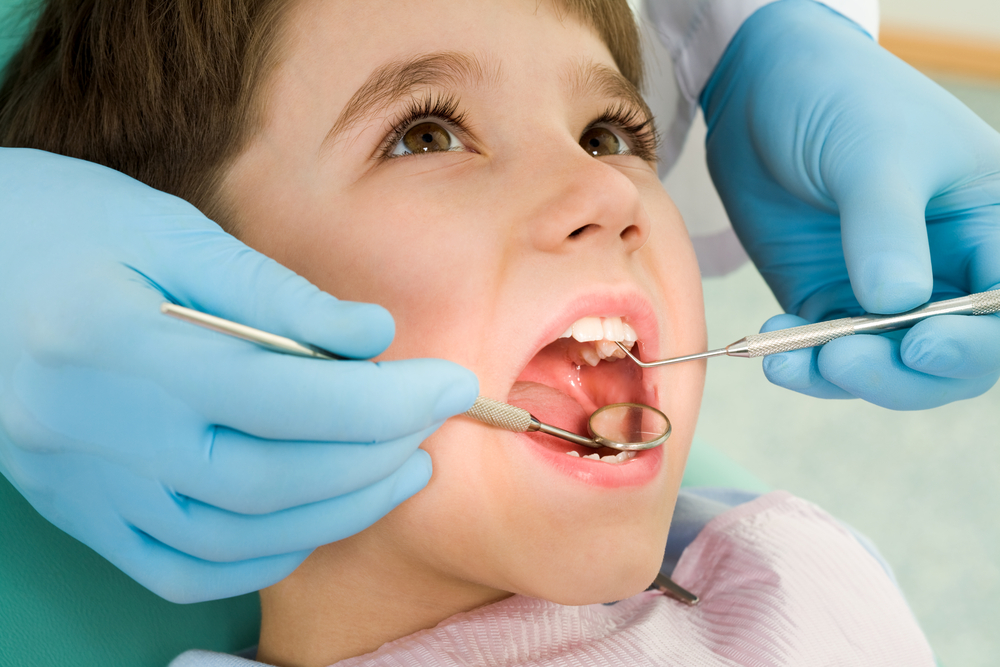What is the difference between orthodontic treatment using a plate or braces?
Active orthodontic treatment to correct simple orthodontic problems prior to the eruption of adult teeth is often done using a plate. A plate is a plastic appliance with wires and springs which may move teeth or hold them in place as your child’s jaws develop and adult teeth erupt. Plates are removable appliances so your child must be committed to wearing it as instructed.
Braces are fixed appliances used to correct simple or complex orthodontic problems predominantly when your child has their full adult dentition. However, they can also be used for a short period of time before the eruption of the adult dentition.
We are often asked about the value of early treatment. Sometimes parents are worried that their children will ‘grow out of’ treatment. Plates or braces at an early age are used to treat functional issues with developing bites – using their growth to our advantage. It may not necessarily prevent the need for comprehensive treatment with braces in their teens, but it certainly makes treatment then much simpler and often faster.
Ronald Tan
BOHT (Melb) PGCDT (Melb)
Peninsula Orthodontics, 134 Tanti Ave, Mornington
Enamel Hypomineralisation or “Chalky Teeth”
Enamel hypomineralisation or “chalky teeth” may affect one in five children. These teeth are very sensitive, causing children to experience pain during normal activities like eating.
Enamel hypomineralisation is a developmental defect affecting the strength and appearance of teeth. They can affect the molar (back) teeth, incisor (front) teeth, primary (baby) teeth, and permanent (adult) teeth. The affected teeth appear white, yellow, or brown patches that are crumbly and soft. The structure of the affected tooth is altered well before it erupts into the mouth. The cause of this condition has not yet been identified.
Affected teeth are weak and break easily once they erupt. This is called post-eruptive breakdown and is due the defect in their formation. Effective treatment requires early detection and the input of specialists so treatment can be staged to match the child’s growth and dental development.
The aim is to ensure that children have pain-free, healthy, strong teeth well into adulthood.
Dr Giselle D’Mello
Paediatric Dental Specialist, Lucas Dental Carem, Mornington
Peninsula Kids – Autumn 2019

